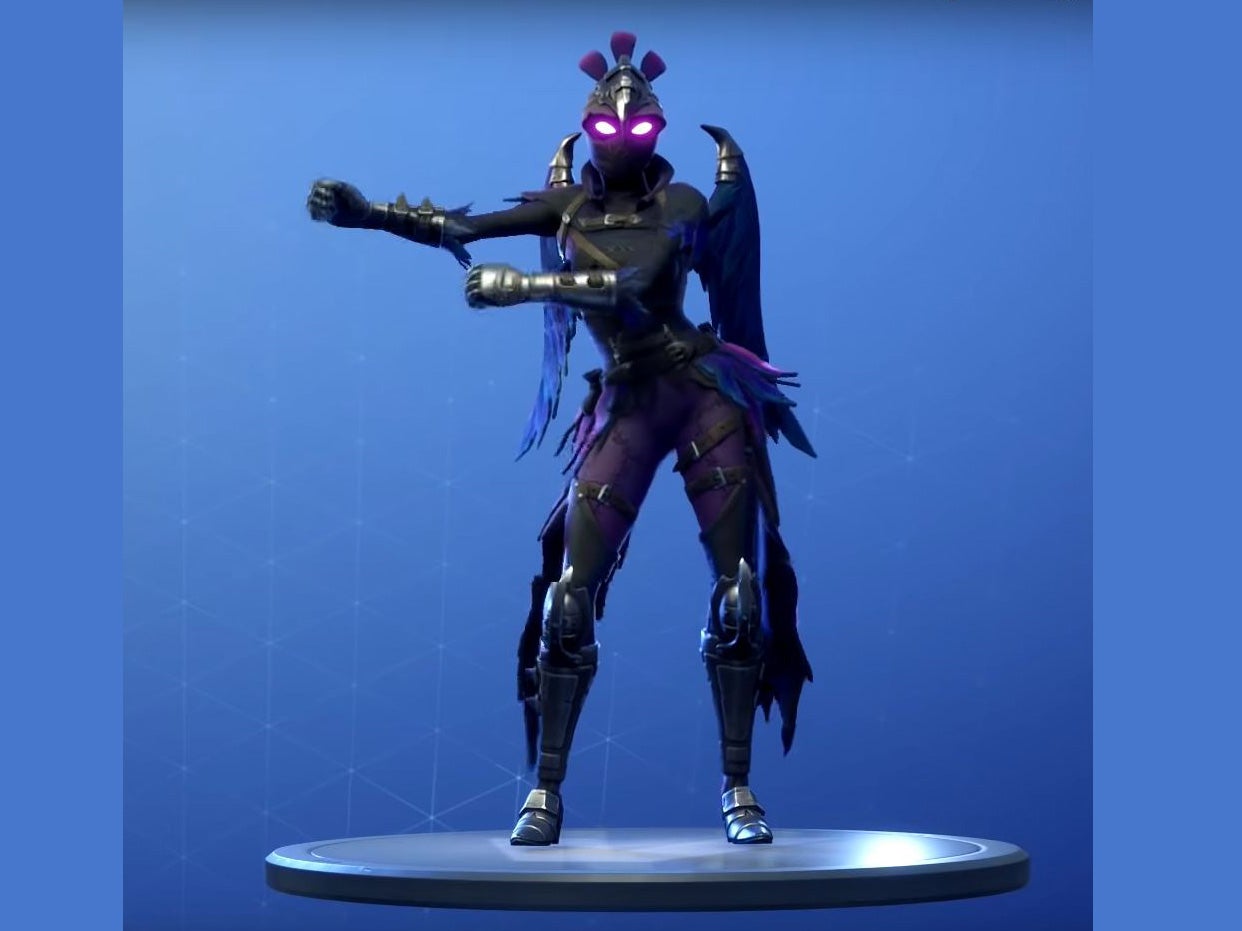Fortnite makers sued for 'stealing floss dance' from Backpack Kid
Epic Games faces lawsuits from three performers over alleged copyright infringement for use of famous dances

Your support helps us to tell the story
From reproductive rights to climate change to Big Tech, The Independent is on the ground when the story is developing. Whether it's investigating the financials of Elon Musk's pro-Trump PAC or producing our latest documentary, 'The A Word', which shines a light on the American women fighting for reproductive rights, we know how important it is to parse out the facts from the messaging.
At such a critical moment in US history, we need reporters on the ground. Your donation allows us to keep sending journalists to speak to both sides of the story.
The Independent is trusted by Americans across the entire political spectrum. And unlike many other quality news outlets, we choose not to lock Americans out of our reporting and analysis with paywalls. We believe quality journalism should be available to everyone, paid for by those who can afford it.
Your support makes all the difference.Three performers are suing the makers of the video game Fortnite for copyright infringement for allegedly "stealing" their dance moves used by characters in the game.
Among these moves is the floss dance created by Russell Horning, 17, who goes by the name Backpack Kid, according to the complaints filed against Epic Games in US District Court in Los Angeles in December.
There is also a dance called "Fresh" that looks like the "Carlton Dance" done by Alfonso Ribeiro, the actor who played Carlton on the show The Fresh Prince of Bel-Air.
And there is a swaying motion used by the characters in the game which the complaint says is identical to the "Milly Rock", created by rapper 2 Milly.
“People book me, they pay me to come perform the song and do the dance,” 2 Milly said in an interview. “They’re stealing from me.”
Ribeiro, 2 Milly and Backpack Kid’s mother (on his behalf) are suing Epic Games for copyright infringement. They are also suing Take-Two Interactive Software, maker of the NBA 2K games, which also allow players to buy the dances.
Fortnite is free to download, but players purchase add-ons as they go along, including a rotating offering of dance moves called “emotes.”
The plaintiffs’ lawyer, David L Hecht, said that his firm has spoken with a “significant number” of people about bringing similar claims and that he has hired a team of people, mostly in their 20s, to play video games for him as research.
Epic Games said it would not comment on ongoing litigation. Take-Two did not respond to a request for comment.
The companies have not yet filed their defences in court, though they are likely to argue that the dance moves cannot be copyrighted.
The lawsuits are among several recent cases testing copyright laws that were written in a vastly different technological age.
As digital animation has become richly vivid and detailed, even who owns the rights to tattoos drawn on athletes’ bodies has become an issue in sports video games.
But while there is plenty of case law regarding the copyrighting of songs and written works, there is far less in the record regarding choreography.
One case several years ago involved Bikram Choudhury, the yoga instructor, who tried to copyright a “hot yoga” sequence as a choreographic work. He lost.
Several intellectual property lawyers suggested there have not been a lot of choreography cases because there is not a lot of money in choreography.
When deciding if a dance is eligible for copyright, courts look at a combination of factors, including its level of creativity, its complexity or length, and whether the work was independently created.
You can not copyright a musical note or a word, for example, but add enough of them together and you’ve got a song you can own.
Individual dance steps are likewise not copyrightable, according to the copyright office’s rule book. And the dances targeted in Fortnite are all quite short.
Even if a dance is deemed long enough, there are other hurdles. For example, the US Copyright Office will not register what it calls a social dance, like ballroom dancing or break dancing.
Thomas Kadri, a resident fellow at the Information Society Project at Yale Law School, said that if Fortnite has copied moves, “it does strike me as a little unfair.”
But if every move could be copyrighted, he said, it could stifle the creation of new work: “It becomes very difficult when every building block of culture becomes somebody’s property in a way that can exclude people from using it.”
Another argument in the Fortnite lawsuits is that the dancing avatars are violating the performers’ “right of publicity,” which gives someone control over things like their likeness, name and voice.
In 1973, performer Hugo Zacchini sued Scripps‐Howard Broadcasting after one of its news programs aired his entire act on television - an act in which he shot himself out of a cannon at an Ohio county fair and landed in a net 200ft away.
The case made it all the way to the Supreme Court, which found in his favour, arguing that if someone could watch the whole thing on television, why would they go to see it in person?
But intellectual property lawyers said this argument is unlikely to succeed in the performers' legal battle against Epic Games.
“Think about how many people want to dance at a club on a Saturday night versus how many people want to shoot themselves out of a cannon,” said Robert Brauneis, a co-director of the intellectual property program at George Washington University Law School.
“I think the court would take into account what kind of activity this is going to burden.”
New York Times
Join our commenting forum
Join thought-provoking conversations, follow other Independent readers and see their replies
Comments